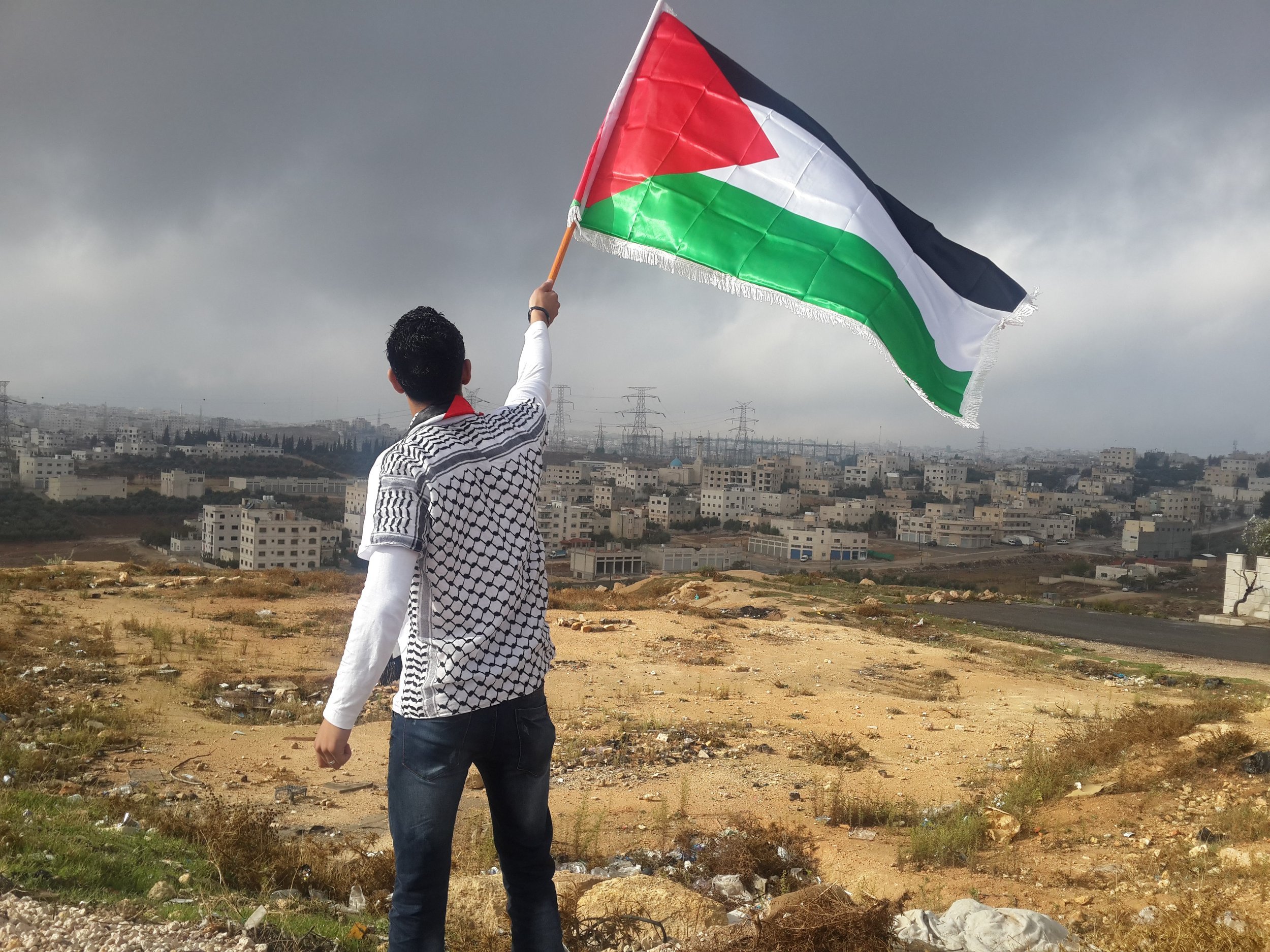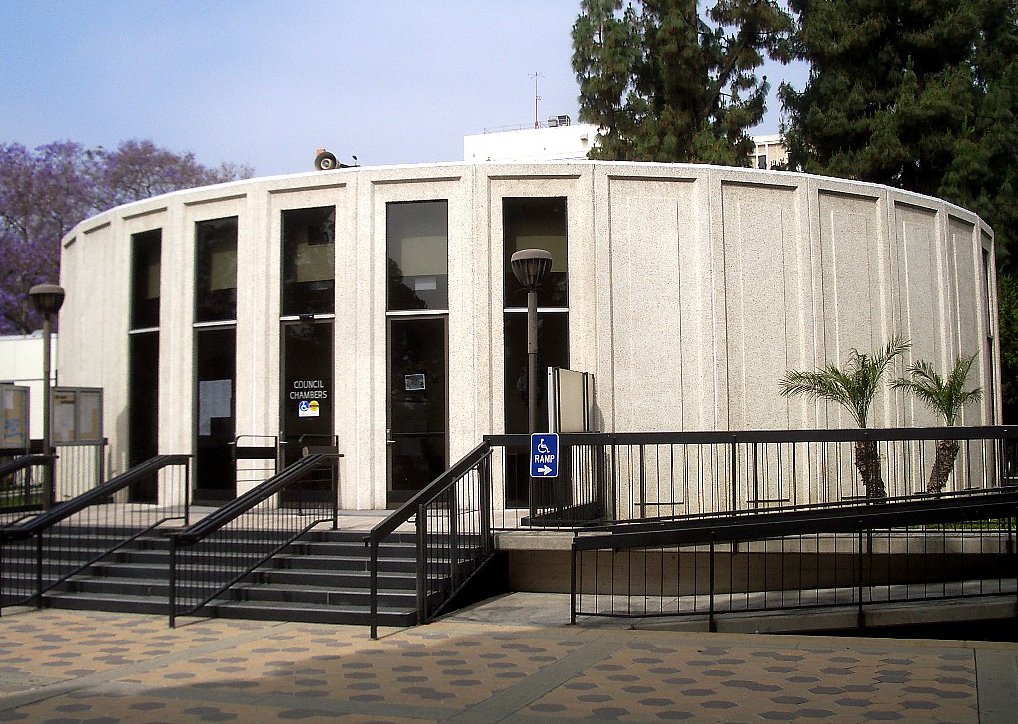Is Anti-Zionism, Anti Semitism?
Photography Courtesy Ahmed Abu Hameeda
By Gilbert Aguirre
Published 10/19/2023 | 7:22am PST
Photography Ahmed Abu Hameeda
NOTE to readers: This is a reprint of an article that The Pomonan printed a year and a half ago about what was happening not only on the University of California at Riverside campus, but on college campuses across the country. Now, here we are some twenty months later, and the question Is Anti-Zionism, Antisemitism? is just as pertinent - perhaps more so - than it was back then. With the Israel-Hamas War raging in the Middle East, universities including Harvard, Stanford, Arizona State, Tufts, to name a few, are erupting over this issue. The Pomonan asks its readers to reconsider this issue in light of recent events. This opinion piece was written by former UCR student Gilbert Aguirre.
An email sent to UCR students from the UCR Life email list on May 27, 2021, caught this recipient’s attention with the subject heading: Anti Semitism: then and now. Instead of providing information on antisemitism, an abhorrent form of discrimination which has no place in civil society, the piece intended to conflate anti-Zionism with antisemitism and erase the existence and justified resistance of Palestinian people.
This is my critique of the interview of UCR Jewish Studies professor Michael Alexander, and his interviewer Omar Shamout, for the disingenuous framing of critiques of the apartheid, settler-colonial state of Israel as antisemitic. Their discussion can be read here (1).
In the article’s opening lines, anti-Zionists, educated on what anti-Zionism and antisemitism is, are made aware that the framing of this article is entirely disingenuous— the working definition of antisemitism in the article comes from the Anti-Defamation League, which classifies antisemitism as being “based on age-old stereotypes and myths that target Jews as a people, their religious practices and beliefs, or the Jewish State of Israel” (2).
I will repeat that antisemitism, like all forms of prejudice, is absolutely abhorrent and must be destroyed by any means necessary. However, in framing critiques of Israel as antisemitic, activists fighting for justice in Palestine are silenced, as the Anti-Defamation League’s definition of antisemitism functions to quell dissent of Israel.
Shamout frames his interview of Alexander as a response to “data compiled by the Anti-Defamation League [which] shows an increase in violent attacks, vandalism and harassment of Jews in the U.S., around the world, and online, since fighting broke out between Israel and Gaza’s militant rulers Hamas earlier this month.” Shamout, in analyzing this framing, identifies that actual antisemitic attacks are being lumped in with “vandalism and harassment” - meaning that vandalizing the phrase “Free Palestine'' on a wall or critiquing Israel on twitter would qualify as antisemitic under this definition.
Again, critiquing Israel is not antisemitic, and this framing portrays a fictitious world in which critiques of Israel have the same material impacts on Jewish people as violent hate crimes committed by white supremacists.
Additionally, others have contested the data compiled by the Anti-Defamation League. In an analytical article published by Jewish Currents, a magazine committed to leftist Jewish discourse, Mari Cohen questions and analyzes the data and methods that contribute to the ADL’s report. Cohen is concerned by the weaponizing of anti-Zionism as antisemitism, and her analysis is critical to the conflation of anti-Zionism with antisemitism contributes to misinformation and skewed data— which she states that the ADL’s report exemplifies (3).
My critique also includes the constant erasure of Palestinian people and Palestine as a sovereign state. In the quotation provided above, Shamout makes his first attempt, through the phrase “fighting broke out between Israel and Gaza’s militant rulers Hamas—“ not Israel and Palestine, not the Israeli Defense Force and Palestinian’s resistance movement, not Israel’s occupying force and the Palestinian resistance; Shamout erases Palestine entirely, as if it were a dirty word.
Shamout proceeds in the next paragraph to use the problematic framing that critique of Israel equates to antisemitism when he asserts, “while hatred toward Jews is sadly nothing new, these incidents are framed against the backdrop of recent Middle East violence, a surge in pro-Palestinian sentiment,” which implies that Palestinian existence is itself a problem.
So I ask, what exactly does the term “pro-Palestinian sentiment” imply? What makes “pro-Palestinian sentiment,” in other words defense of Palestinian’s right to exist and resist violence from the state of Israel, support hatred towards Jewish people? Would the international movements and demonstrations against police violence after the murder of George Floyd be considered “pro-Black sentiment”? Why is Palestinian existence framed as a problem?
Shamout seems to suggest that anti-Zionism is separate from antisemitism when he asks Alexander, “Many of the recent antisemitic incidents have used the term ‘Zionism.’ Can you explain what Zionism meant historically, what it means today, and how the term has been used by racists to target Jews?” To which Alexander gives a bloated, incoherent response that doesn’t state the clear intentions of Zionism, which is a colonial project whose modern conception was proposed and propagated by Theodor Herzl (4).
Zionism, a political position, is framed by Alexander as, “simply Jewish nationalism: the desire for the Jewish people to have and hold their own state,” ignoring that this political position hinges upon the colonization of Palestine, and the genocide of its native occupants. Alexander seems to support the ethnic cleansing of Palestinians when he states, “Let’s not forget, the logic of self-determination implies the cleansing of everybody else in order to achieve a majority. Cleanse or be cleansed. The logic is stark, but to date it remains the main means by which nation states are formed.”
So I ask, how is it that UCR News published this violent, genocidal speech that it circulated to its student body? How can a professor be unashamed of giving a defense of what he himself refers to as “the cleansing of everybody else in order to achieve a majority”?
Shamout, expecting an answer to the question, “So it’s fair to say that not all critics of Zionism should be cast as antisemitic?” instead receives another bloated, asinine response where Alexander further defends genocide. Alexander proposes a both-sides defense of genocide in his next monologue, by skirting the question, as he states, “Zionism is as legitimate and as problematic as any other nationalism.”(5)
To this, I argue that nationalism against an oppressive force is legitimate. Nationalism against colonizing forces is what has historically motivated the Cuban Revolution, the Irish Republican Army’s resistance against British colonial rule, and Palestinians’ fight against the Israeli government - to name a few. In the case of Palestine, Israel has actively pushed Palestinians out of their homes, murdered Palestinian children, and bombed its densely populated territories (6). This kind of nationalism is quite different from the kind of nationalism that seeks to oppress another group while expanding the nation’s borders in disregard to human rights and international law.
Alexander continues, “it is problematic in the sense that having formed an ethnic majority, Israel turns around and polices its remaining minorities.” As a reminder, the minorities Alexander refuses to name are Palestinians. Additionally, the Palestinians Alexander refuses to name have only become minorities as a result of Israeli occupation, a modern project that ironically results in some Palestinians being older than the illegitimate state of Israel.
Further Alexander states, “Nearly all majorities do this. This past year, we all saw once again how the American policing of minorities is no exception. The problem of minorities is systemic and is not particular to Israel or to the U.S. Yet that does not excuse Israel from the need to acknowledge and cease the violence of its nation building.”
Implicitly, excusing is exactly what Alexander is doing. To both-sides and what-about state violence via settler-colonialism and white supremacist policing in both Israel and the United States is a disingenuous deflection that attempts to justify the violence of Israel. Alexander is saying— Yeah, it sucks, but that’s just how it goes. By putting on an apolitical mask, in this case and in any other case, it is very clear that the person engaging in the both-sides / what-about argument is on the side of the oppressor.
In the last two sentences of his pro-genocide diatribe, Alexander attempts to answer Shamout's question on whether or not all critiques of Zionism equate to antisemitism even though, thus far, he has shown a clear aversion to answering any question directly. He states, “I would say this is the great moral imperative and conundrum of the Jewish people in our time. Still, it is a conundrum that rightly should be admitted and shared by hundreds of nations and national movements.” Again, Alexander’s answer is an asinine non-answer that serves to conflate all Jewish people with the ideology of Zionism. It is all in service of Alexander’s personal political agenda.
At the interview’s conclusion, Shamout asks Alexander, “what do you think are the best ways to combat antisemitism in our communities, both physical and online?” to which Alexander does not speak to antisemitism, but once again to the prospects and effects of propagating Zionism without consequence. His opening statement to this sentence is, again, incoherent, so I’ve done the work of decoding it. He states, “I would need to expand the purview of the mandate to include the elimination of Islamophobia and the denial of Palestinian rights to a free and self-determined state.” This thirty-one word sentence means almost nothing, but serves to frame the Israeli occupation of Palestine as a religious issue.
Contrary to what Alexander is propagating, there are Palestinians of Muslim faith, Christian faith, Jewish faith, and atheists (7)— keep in mind the question Shamout asked concerned how to combat antisemitism, but Alexander’s monologue concerns Zionism.
In the following sentence, Alexander reveals his true intentions as he states, “it would also have to include complete civil rights for Palestinians and other minorities who are Israeli citizens.” By granting Palestinians citizenship status, he is finally revealing his agenda as a one state solution Zionist. Under the proposed civil rights, Palestinians won’t have their land, and they would be citizens of the illegitimate state of Israel that imposed itself onto the Palestinian people.
Ultimately, this interview published by UCR News is unacceptable in its disingenuous framing of a human rights issue that affects the lives of real people, and has affected the lives of Palestinian students at UCR. In framing critiques of Zionism as antisemitic, and speaking almost exclusively to Zionism in an interview which is supposedly about antisemitism, Alexander constructs an argument that, within the argument’s fabrication, cannot be critiqued without being antisemitic.
Furthermore, the answers Alexander gives are so bloated and incoherent, I don’t understand how he is a professor at UCR, as I’ve had more coherent and substantive conversations with my five-year-old brother, who would stand firmly against genocide if knowledgable enough to understand it— rather than providing a both-sides / what-about defense so that his in-group can commit atrocities without critique.
To be explicit, my use of “in-group” is not an allusion to an antisemitic conspiracy, but a direct contention of the conflation of critiques of Zionism as antisemitic— a clear and obvious disingenuous framing that uses identity as a shield and weaponizes actual hate towards Jewish people, which has material consequences and thus should not be minimized to serve a political agenda.
LINKS
1. Jewish Studies Expert Discusses Rise in Antisemitic Attacks
2. What Is… Anti-Israel, Anti-Semitic, Anti-Zionist?
3. Mari Cohen “A Closer Look at the ‘Uptick’ in Antisemitism
4. History, “Zionism
5. Amilcar Cabral, “National Liberation and Culture
6. Washington Post “The toll of Israeli strikes on Gaza: Mapping the destruction left behind
7. Institute for Middle East Understanding “Are all Palestinians Muslim?









